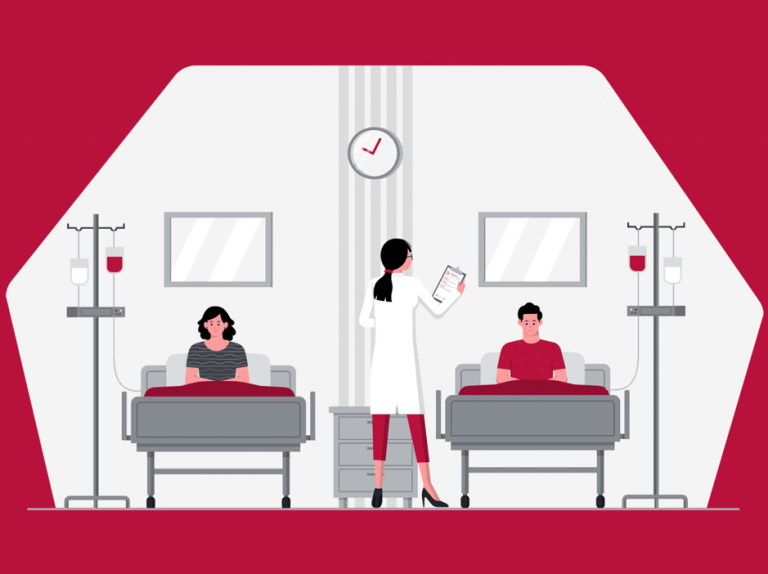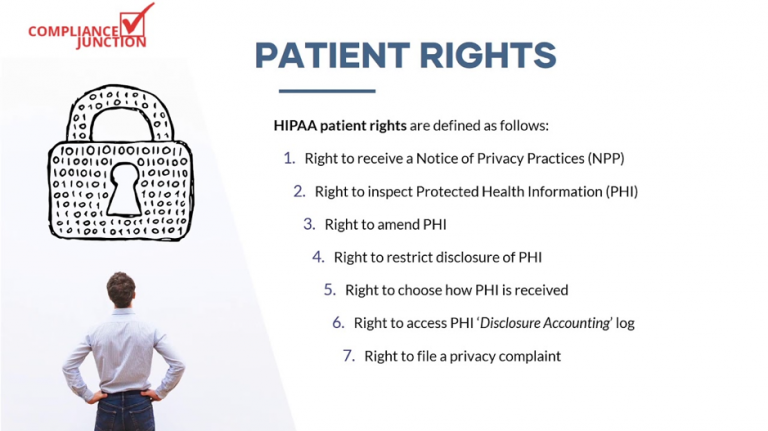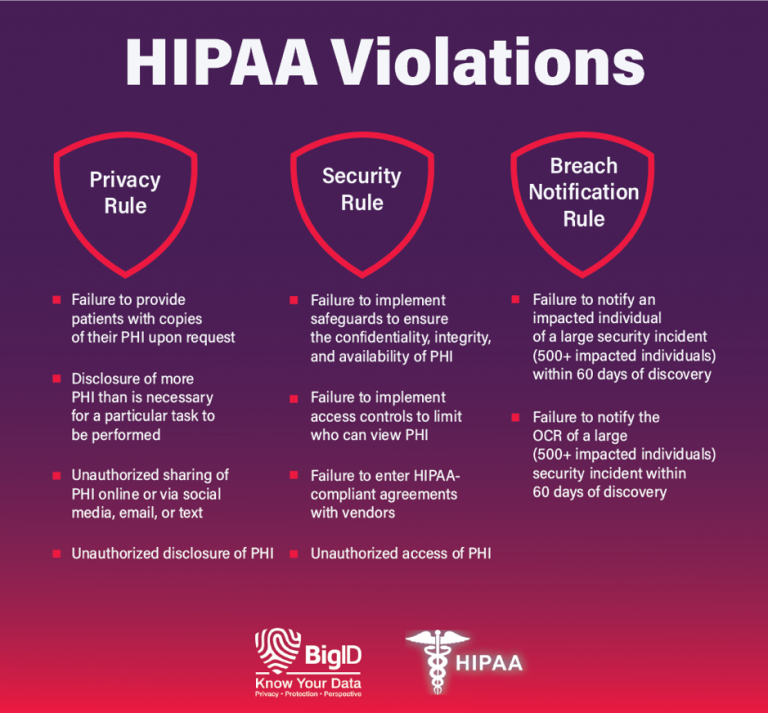
Patient consent is a critical component of HIPAA compliance, as it helps to ensure that patients have control over their own health information. HIPAA requires healthcare providers and organizations to obtain written consent from patients before using or disclosing their health information for treatment, payment, or healthcare operations. Patients have the right to revoke their consent at any time, and healthcare providers and organizations must comply with this request.
To ensure that patient consent is obtained in a manner that is compliant with HIPAA regulations, healthcare providers and organizations must provide patients with clear and concise information about the use and disclosure of Protected Health Information (PHI) and ensure that the consent forms are complete, accurate, and properly documented. HIPAA patient consent is an essential aspect of protecting patient privacy and security, and it is critical for ensuring that patients have control over their own health information.
Types of patient consent
There are different types of patient consent that may be required under HIPAA, including general consent, specific consent, and emergency consent. General consent is typically obtained at the beginning of a patient’s relationship with a healthcare provider and covers the use of PHI for treatment, payment, and healthcare operations. Specific consent, on the other hand, is required for the use or disclosure of PHI for specific purposes, such as research or marketing. Emergency consent may be obtained in emergencies when obtaining written consent from the patient is not possible.
Under HIPAA, there are several types of patient consent that healthcare providers and organizations may need to obtain, including:
General consent
General consent is typically obtained at the beginning of a patient’s relationship with a healthcare provider and covers the use of PHI for treatment, payment, and healthcare operations. This type of consent is usually obtained through the use of a HIPAA-compliant authorization form.
Specific consent
Specific consent is required for the use or disclosure of PHI for specific purposes, such as research or marketing. This type of consent is usually obtained through a specific consent form that clearly explains what information will be used or disclosed, for what purposes, and who will receive it.
Emergency consent
Emergency consent may be obtained in emergency situations when obtaining written consent from the patient is not possible. Emergency consent is typically obtained through verbal communication, and healthcare providers and organizations must document the circumstances under which it was obtained.
Implied consent
Implied consent is when a patient’s actions indicate their agreement to the use or disclosure of their PHI. For example, if a patient shows up for a scheduled appointment, they may be considered to have given implied consent for the use of their PHI for treatment purposes.
Revocable consent
Patients have the right to revoke their consent at any time, and healthcare providers and organizations must comply with this request. Revocable consent must be clearly explained to patients and include information on how to revoke their consent.
It is important for healthcare providers and organizations to understand the different types of patient consent and to follow HIPAA regulations when obtaining and using patient health information. This helps to ensure that patients have control over their own health information and that their privacy and security are protected.

Patient consent problems
Another challenge of obtaining patient consent is ensuring that patients’ health information is protected and kept confidential. HIPAA requires healthcare providers and organizations to implement appropriate safeguards to protect patient health information, including technical, physical, and administrative safeguards.
For example, healthcare providers and organizations must implement security measures to prevent unauthorized access to patient health information, such as encryption and firewalls. Additionally, they must limit access to patient health information to only those individuals who need it to perform their job responsibilities.
There are several problems that healthcare providers and organizations may face when it comes to HIPAA patient consent, such as:
Incomplete or inconsistent Forms
Incomplete or inconsistent consent forms can create confusion and lead to errors in the use or disclosure of patient health information.
Inadequate patient understanding
Patients may not fully understand the consequences of giving or withholding their consent, leading to mistakes in the use or disclosure of their health information.
Difficulties in revoking consent
Patients have the right to revoke their consent at any time, but it can be difficult for healthcare providers and organizations to comply with this request if they have not properly documented the consent process.
Balancing privacy and patient care
Obtaining patient consent can sometimes conflict with the need to provide timely and effective patient care. This can be particularly challenging in emergency situations.
Ensuring compliance with HIPAA regulations
Keeping up with HIPAA regulations and ensuring that patient consent processes and procedures are in compliance can be a challenge for healthcare providers and organizations. HIPAA regulations are constantly changing, and healthcare providers and organizations must stay informed about the latest requirements and updates.
Protecting patient health information
HIPAA requires healthcare providers and organizations to implement appropriate safeguards to protect patient health information, but these safeguards can be difficult and expensive to implement, particularly for small organizations.
Tech challenges with patient consent
Technology has presented new opportunities and challenges in obtaining and maintaining secure electronic patient consent. Organizations must ensure that electronic signatures and electronic consent forms are compliant with HIPAA regulations and protect against unauthorized access or theft of PHI. Additionally, healthcare organizations must keep up with constantly evolving technology and adapt their consent processes to new technologies, such as the increasing use of mobile devices for health information access. These challenges underscore the importance of carefully considering the technology used for obtaining and storing patient consent under HIPAA.
There are several tech challenges associated with HIPAA patient consent, including:
Electronic Health Record (EHR) systems
Integrating patient consent processes into EHR systems can be complex, and it can be difficult to ensure that the systems are HIPAA-compliant.
Mobile health apps
The use of mobile health apps is becoming increasingly common, but it can be challenging to obtain patient consent for the use of these apps in a way that is compliant with HIPAA regulations.
Data security
Ensuring the security of patient health information is essential, but it can be difficult to implement the technical, physical, and administrative safeguards required by HIPAA in a manner that is both effective and cost-efficient.
Interoperability
Ensuring that different EHR systems and mobile health apps can communicate with each other can be challenging, particularly when it comes to obtaining and managing patient consent.
Keeping up with technological changes
Technology is constantly changing, and healthcare providers and organizations must stay informed about the latest developments and updates in order to ensure that their systems are HIPAA-compliant. Tech challenges can present significant obstacles to obtaining HIPAA patient consent, but by staying informed about the latest developments and implementing appropriate safeguards, healthcare providers and organizations can overcome these challenges and ensure that patient health information is protected.

Patient consent benefits
One of the key benefits of patient consent is that it helps to build trust between patients and healthcare providers. By giving patients control over their own health information, they are more likely to be engaged in their own care and to share important information with their healthcare provider. This, in turn, can lead to improved health outcomes, as healthcare providers are able to make informed decisions about treatment and care.
There are several benefits to obtaining HIPAA patient consent in healthcare, including:
Protecting patient privacy
HIPAA patient consent helps to protect the privacy of patients by giving them control over their own health information. This helps build trust between patients and healthcare providers and promotes patient engagement in their own healthcare.
Improving patient care
By giving patients control over their health information, HIPAA patient consent can help to improve the quality of care that patients receive. For example, by obtaining consent for the sharing of health information between healthcare providers, patients can receive more coordinated and effective care.
Compliance with HIPAA regulations
Obtaining HIPAA patient consent is a requirement under HIPAA regulations, and failure to comply with these regulations can result in significant fines and other penalties. By obtaining HIPAA patient consent, healthcare providers and organizations can help to ensure that they are in compliance with these regulations.
Improving data security
HIPAA patient consent helps to ensure that patient health information is used and disclosed in a manner that protects its security and privacy. This can help to prevent breaches of patient information and can also help to build trust with patients and other stakeholders.
Supporting research and innovation
HIPAA patient consent can help to support research and innovation in healthcare by allowing researchers to access the health information that they need while also protecting the privacy of patients.
Obtaining HIPAA patient consent provides several important benefits to healthcare providers, patients, and the healthcare system as a whole. By obtaining consent in a manner that is compliant with HIPAA regulations, healthcare providers and organizations can help to protect patient privacy, improve patient care, and support research and innovation in healthcare.
Conclusion
HIPAA patient consent is an essential aspect of protecting the privacy and security of patient health information. By obtaining patient consent, healthcare providers and organizations can build trust with their patients and ensure that they have control over their own health information. However, obtaining patient consent can be challenging, and healthcare providers and organizations must make sure that patients fully understand the consequences of giving or withholding their consent and that their health information is protected and kept confidential.
As such, it is crucial for healthcare providers and organizations to follow HIPAA regulations and to ensure that they have appropriate processes and procedures in place to obtain and manage patient consent. However, problems like inadequate encryption, insecure communication methods, and uneven access controls persist in healthcare software. Even minor issues like push notifications can result in HIPAA violations, making it difficult to develop secure, HIPAA-compliant software.
At Itirra, we are experts in constructing secure software for healthcare companies. Our experts have extensive knowledge in developing complete healthcare solutions. Get in touch with us now to learn how to attain and maintain HIPAA compliance while building software for your business.
